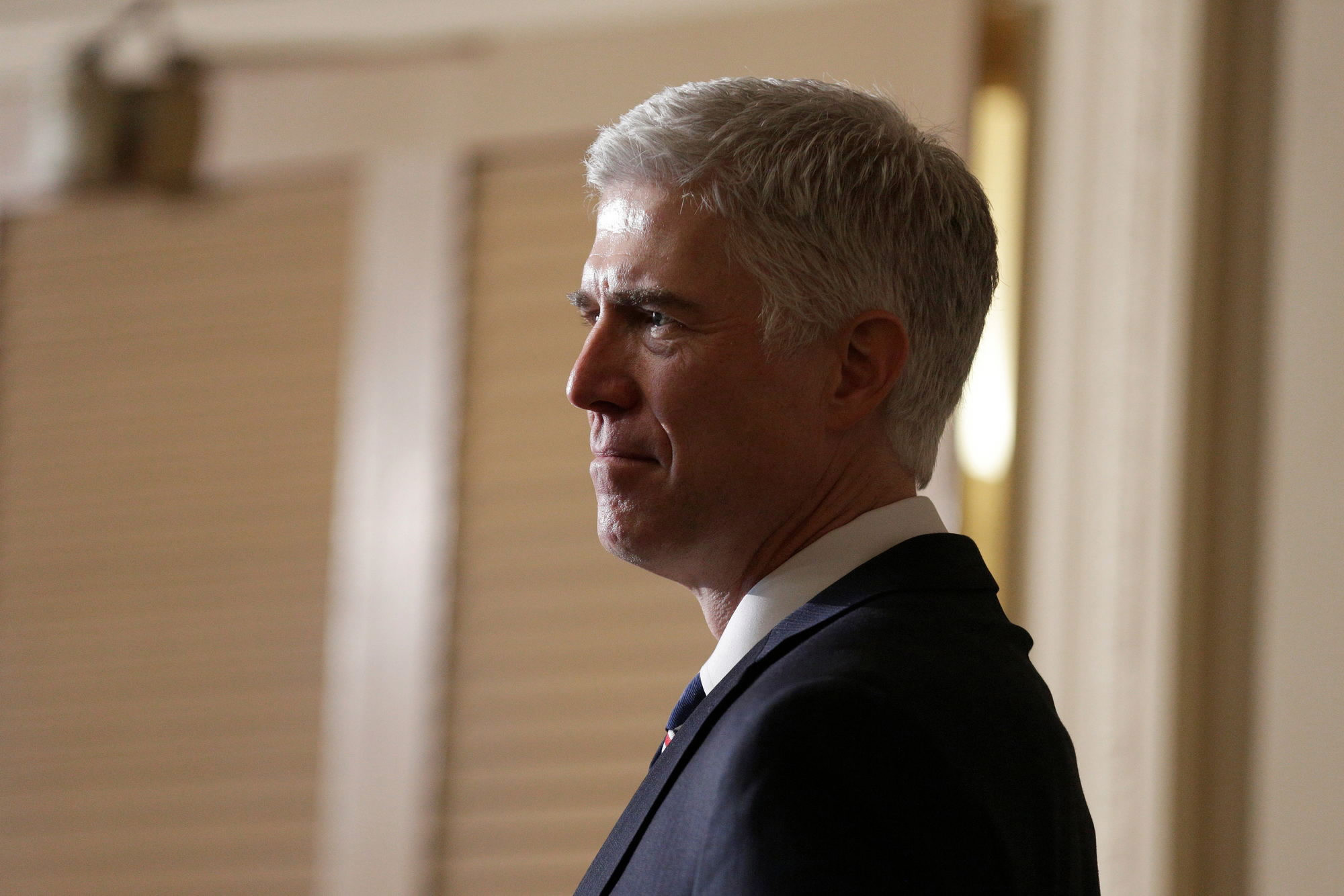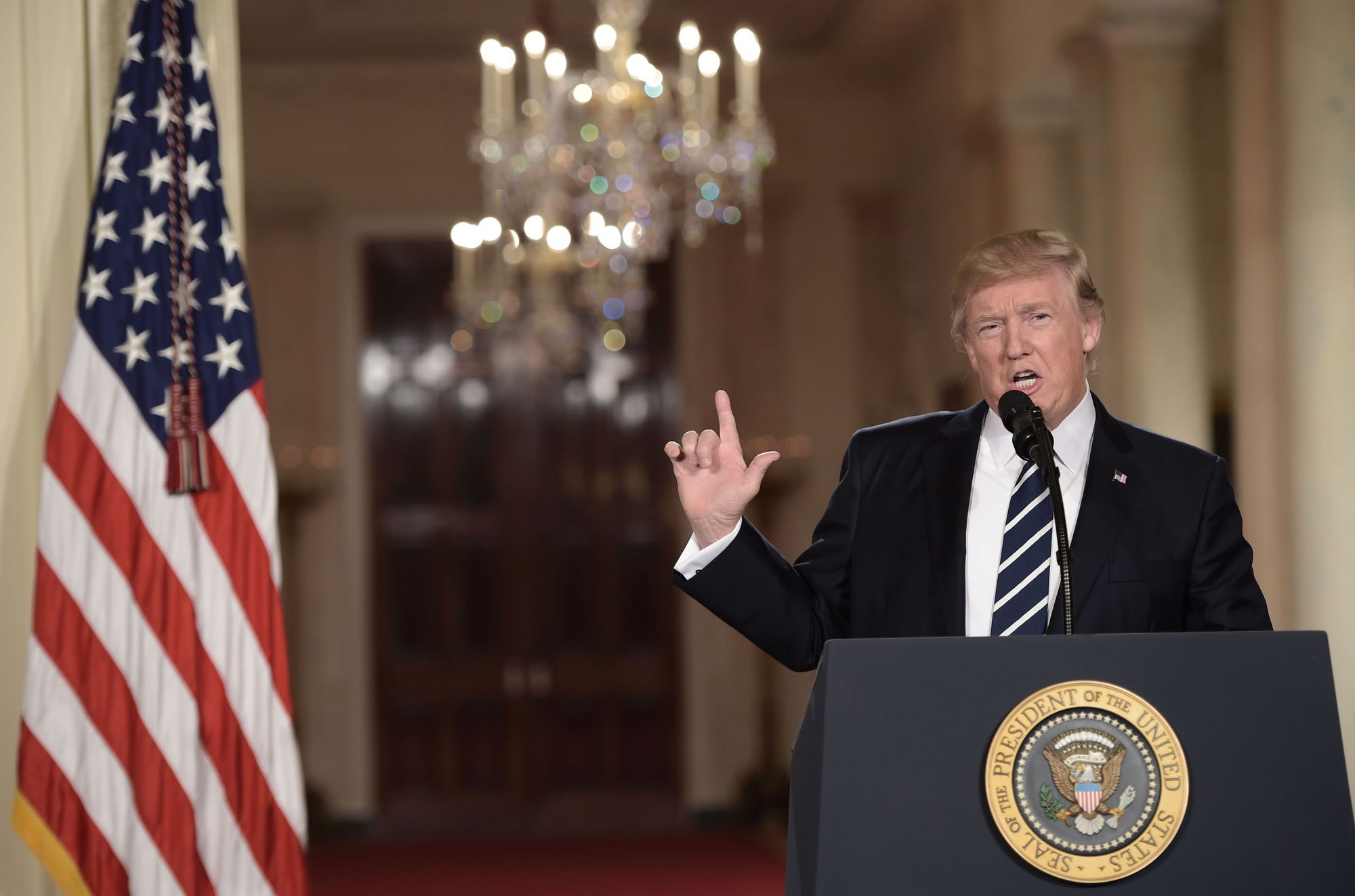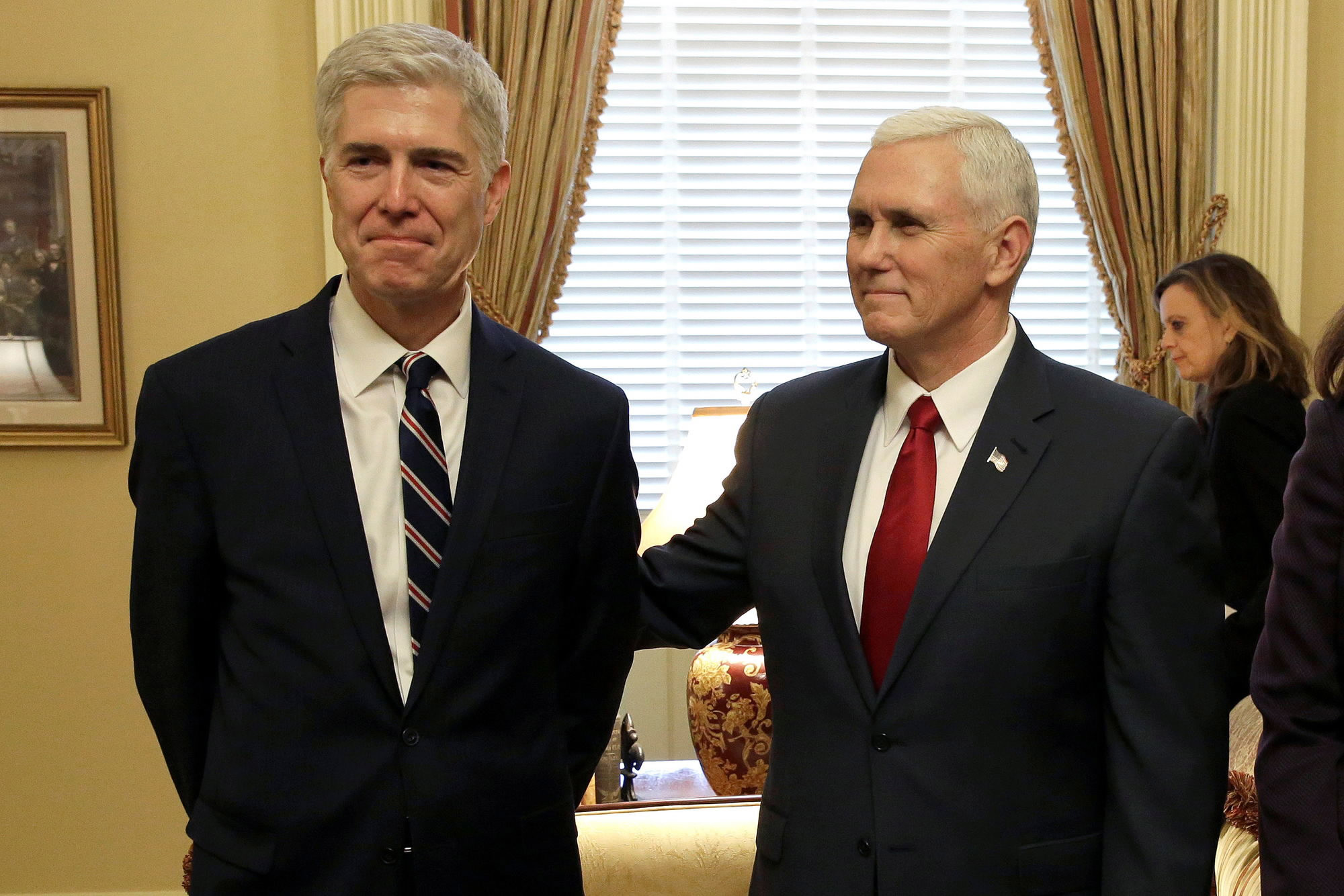
Politics
09:56, 02-Feb-2017
Supreme Court’s future in the era of Trump’s presidency
Updated
10:39, 28-Jun-2018

Judge Neil Gorsuch, 49, is US President Donald Trump’s pick for the next Supreme Court Justice. Trump called him a "terrific person" who is “perfect in just about every way”.
As the highest court in the nation, the Supreme Court’s nine justices rule on the country’s toughest legal questions, some of which have real-world effects.
The 2015 Paris Climate Agreement, reached with the leadership of Beijing and Washington — the US commitment to reduce emissions, was based on a rule to limit carbon emissions from US power plants, a rule that had been challenged all the way to the Supreme Court.

US President Donald Trump speaks as he announces his nominee to the Supreme Court at the White House in Washington, DC, on January 31, 2017. /CFP Photo
US President Donald Trump speaks as he announces his nominee to the Supreme Court at the White House in Washington, DC, on January 31, 2017. /CFP Photo
The late Justice Antonin Scalia, who Gorsuch would replace if confirmed, was one of the justices who decided to stop that rule and future challenges are far from over.
Then there were cases that safeguard the design of everyday devices — like cell phones. In December, the Supreme Court sided with Samsung and ruled the company may not have to give up some of its profits after it copied the shape and icons of Apple’s iPhone.

Supreme Court Nominee Judge Neil Gorsuch stands with US Vice President Mike Pence on Capitol Hill in Washington, DC on February 1, 2017. /CFP Photo
Supreme Court Nominee Judge Neil Gorsuch stands with US Vice President Mike Pence on Capitol Hill in Washington, DC on February 1, 2017. /CFP Photo
Last year, the court reviewed seven patent cases, and court watchers said under Chief Justice John Roberts, justices are reviewing more patents than in the past.
In the aftermath of President Trump’s controversial travel ban on seven majority Muslim countries, opposition groups have filed lawsuits to block it. As the cases are heard, some could well end up before the US Supreme Court.
The court is also currently considering whether a US parent may transfer his or her citizenship to children born abroad and out of wedlock.
11166km

SITEMAP
Copyright © 2018 CGTN. Beijing ICP prepared NO.16065310-3
Copyright © 2018 CGTN. Beijing ICP prepared NO.16065310-3